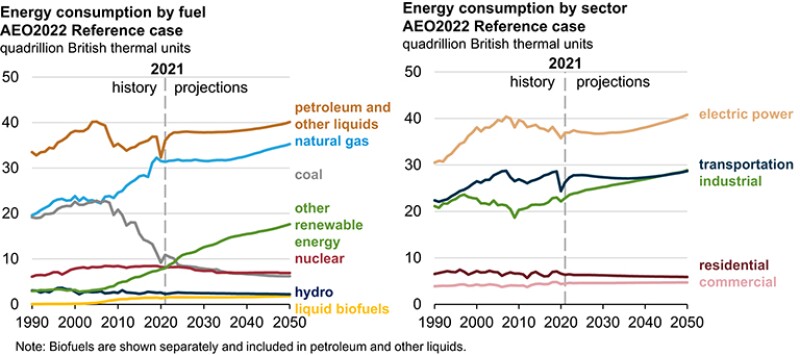Petroleum engineers are facing challenges just as they have for the past 100 years. We have been addressing these challenges and delivering solutions to continue our mission to provide the world with the energy it needs. Some of these challenges are technical in nature, some are due to economic situations, and now we are also facing challenges because of political positions. We are not alone in this regard. For example, handling the challenge the world faced with COVID-19, which should be based on medical and scientific results, was also mired in political debates. I have chosen the theme of Petroleum++ for my presidency to characterize the work in front of us to continue our mission. But I am getting ahead of myself.
Let me start by mentioning that I am honored to be elected to the position of 2023 SPE President. I have been a member of this Society for more than 50 years and have volunteered for just about every function and service it offers to members. I have benefited from working with several distinguished members who dedicated a lot of their time and effort to enhance the petroleum engineering profession.
Petroleum engineering has its unique challenges. It has been changing and evolving for almost 100 years. This will continue to meet current and future world needs for energy.
I want to take this opportunity to thank the members of the SPE International Board of Directors who just completed their term of service on the board. This includes Tom Blasingame, 2021 President; Zach Evans, the regional director for North America; Qasem Al-Kayoumi, the regional director for the Middle East and North Africa; Robert Pearson, the technical director for Production and Facilities; and David Reid, the technical director for Drilling. I would also like to thank Dr. Kamel Ben-Naceur who led the Society as the 2022 President.
Over the past year, SPE dealt with several events that I plan to discuss in later columns. Among these events were the proposed merger with AAPG, having an election for the open seats on the board for the first time in a couple of decades, and the work on updating the strategic plan for the Society, a task that is carried out once every 5 years.
I would like to talk about the theme for this year’s SPE presidency which is Petroleum++. I chose this theme because it encompasses how we should address the challenges we are facing as petroleum engineers.
First, we need to produce the needed hydrocarbons which will be a significant source of energy for the world until the year 2050 and beyond. The graph by the US Energy Information Administration shows that at least 50% of the world energy until 2050 will be obtained from oil and natural gas; similar results are shown for both the US and the entire world.

Although the percentage of the hydrocarbons in the mix of energy sources will decrease slightly from the low 50s to the high 40s by the year 2050, the actual volume of oil and natural gas that needs to be produced will increase due to the projected growth in population and advancements in economic conditions in the parts of the world that now do not have the same living standards and energy requirements as the US and Western Europe.
To be able to produce the added oil and natural gas, we need to continue to advance the technology we are working with today in all aspects of petroleum engineering from drilling to formation evaluation to completion to production to reservoir engineering to reserve calculations and finally, to abandonment. In addition to these technical challenges, we also need to deal with the economic challenges that most of us experienced several times with the cyclic fluctuations of the price of oil.
Added to the technical and economic challenges, we also face challenges stemming from concerns about climate change and the need to reduce the dependency on hydrocarbon sources of energy and replace them with renewable sources that do not add greenhouse gases (GHGs) to the atmosphere to achieve a goal of net zero by 2050. For net zero to be achieved, an equal amount of carbon dioxide (CO2) produced from various activities and released in the atmosphere should be removed. Other GHGs like methane should be curtailed or eliminated.
Petroleum engineers have a significant role to play in achieving the net-zero objective. This is the reason for the first + in my theme. It is well known that the most viable way of reducing CO2 in the atmosphere is by injecting it into underground formations—work that needs to be done by petroleum engineers. We have been injecting CO2 underground for enhanced oil recovery for decades. We now need to substantially increase this effort by injecting CO2 into underground formations and ensure it stays there for a long time. More technical developments are needed as the scale of CO2 injection increases to the required levels.
Another area of development is the reduction of methane emissions from our operations. Developments in identification, measurement, and reduction or elimination of these emissions need to be done by petroleum engineers. It is expected that other issues may arise as we play our role in combating the climate change challenge, and it may require advancing our competencies beyond what we have today.
Carbon storage is perhaps the only viable option for reducing carbon to the levels that governments have agreed are important.
The second + relates to the need for the development of other forms of energy sources. First of all, we need to have additional forms of energy because the amount of hydrocarbons produced over the long range is not enough to satisfy the world’s need. Additionally, these new forms of energy (green or renewable) should not add GHGs to the atmosphere.
Petroleum engineers have an important role in developing these new forms of energy. For example, producing heat from underground formations. We have been producing geothermal energy through petroleum engineering practices for decades from areas with abnormally high temperatures. Now, our competencies may be used in areas with normal temperature gradients to harness the heat.
The petroleum industry has technological leadership in all aspects related to blue hydrogen generation, supply, and use, and could lead the energy transition with a blue hydrogen economy.
As an example, we can do that by using the same technology for producing oil and gas from unconventional reservoirs by drilling horizontal wells and having multiple stages of fractures to increase the surface area available for fluid (or heat) to flow from the formations. Another example of the role of petroleum engineers in developing green energy or renewable energy is the production of hydrogen from natural gas, as in the production of gray or blue hydrogen. Of course, blue hydrogen would be more appropriate as it would not add GHGs to the atmosphere.
Petroleum engineers have important roles to play in the future energy for the world. First, by using our traditional concept of producing oil and natural gas as we are doing now and will need to continue to do for decades to come. Second, we need to use our competencies to address the challenges of climate change. Third, we can help develop additional forms of energy that do not add GHGs to the atmosphere.
I know that some of our members think that SPE should continue to emphasize the current tradition of petroleum engineering concepts, and in my opinion, there is no need to reduce that emphasis. Another group of our members think we need to accelerate our move into the energy transition space. I think that we need to be adding to our competencies to allow us to move into the energy transition through our help in mitigating the climate change issue and by adding our abilities to produce other forms of energy.
Until next month, when I would like to talk about some of the other events that shaped our Society’s experience over the past year.


